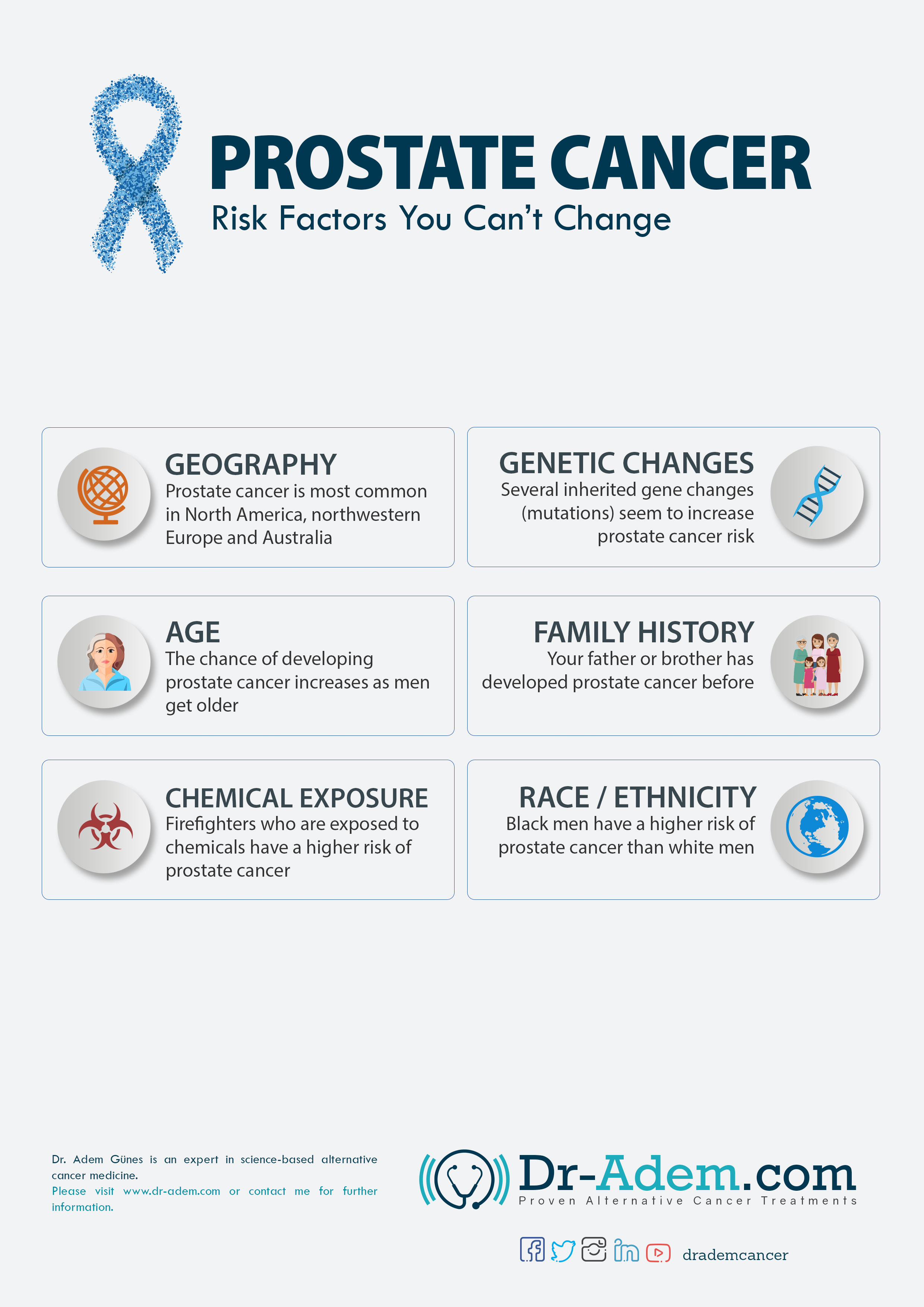Here’s the list of Major Risk Factors For Prostate Cancer that you can’t change, but also there are many factors that you can control and be proactive about.

Embed this Infographic on your site:
<a href='https://dr-adem.com/major-risk-factors-for-prostate-cancer/'><img src='https://dr-adem.com/wp-content/uploads/2019/10/prostate-cancer-risk-factors-you-cant-change-1.jpg' alt='Major Risk Factors For Prostate Cancer'/></a>- Geography
Prostate cancer is most common in North America, northwestern Europe, and Australia. Asian men living in big cities had a high risk, as well, regardless of their geographic location. Statistics show an association between urbanized environments and physical inactivity. Scientists don’t know exactly how your geographic location affects your prostate cancer risk, but it seems to be a multifactorial procedure. - Age
The chance of developing prostate cancer increases as men get older, especially older than 50 years old. 80% of the prostate cancer cases appear in those more than 65 years old. The challenges associated with prostate cancer multiply the older the patient gets. Therefore, screening after a certain age is crucial. - Chemical Exposure
Firefighters who are exposed to chemicals have a higher risk of prostate cancer. The following are some well-established chemicals that may increase the risk of prostate cancer:
• Cadmium in tobacco
• Pesticides
• PCBs in animal fat
• Bisphenol A (BPA) - Genetic Changes
Several inherited gene changes (mutations) seem to increase prostate cancer risk. Hereditary breast and ovarian cancer (HBOC) syndrome in men increases the risk of prostate cancer aggressiveness. Responsible for that is mutations in the BRCA1 and BRCA2 genes. HPC1, HPC2, HPCX, CAPB, ATM, and FANCA genes carry a high risk too. However, none of these genes are specific for prostate cancer. Currently, there’s no genetic test available to establish a man’s risk. - Family History
If your father or brother developed prostate cancer in the past, you might develop it too. This phenomenon is due to hereditary prostate cancer. Hereditary prostate cancer appears under certain circumstances, including positive family history. A positive family history means one of the following:
• Prostate cancer of 3 or more 1st-degree relatives
• Prostate cancer for 3 generations
• Prostate cancer diagnosis before 55 years old for 2 or more 1st-degree relatives - Race / Ethnicity
Black men have a higher risk of prostate cancer than white men. They are also more exposed to aggressive tumors and early appearance of prostate cancer in black men. Scientists don’t know exactly why this happens. There seem to be many factors involved, such as genetics or socioeconomic status.


